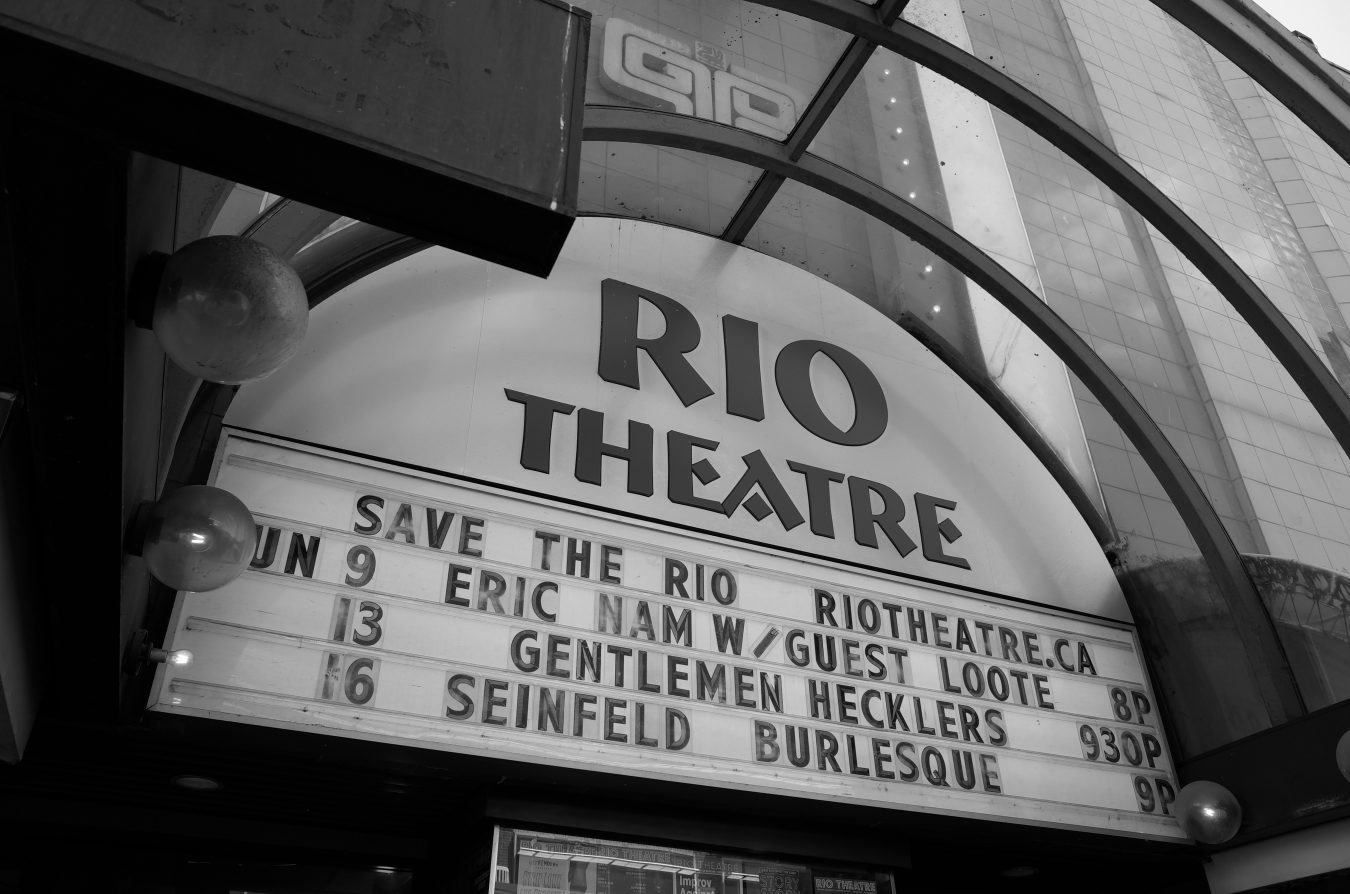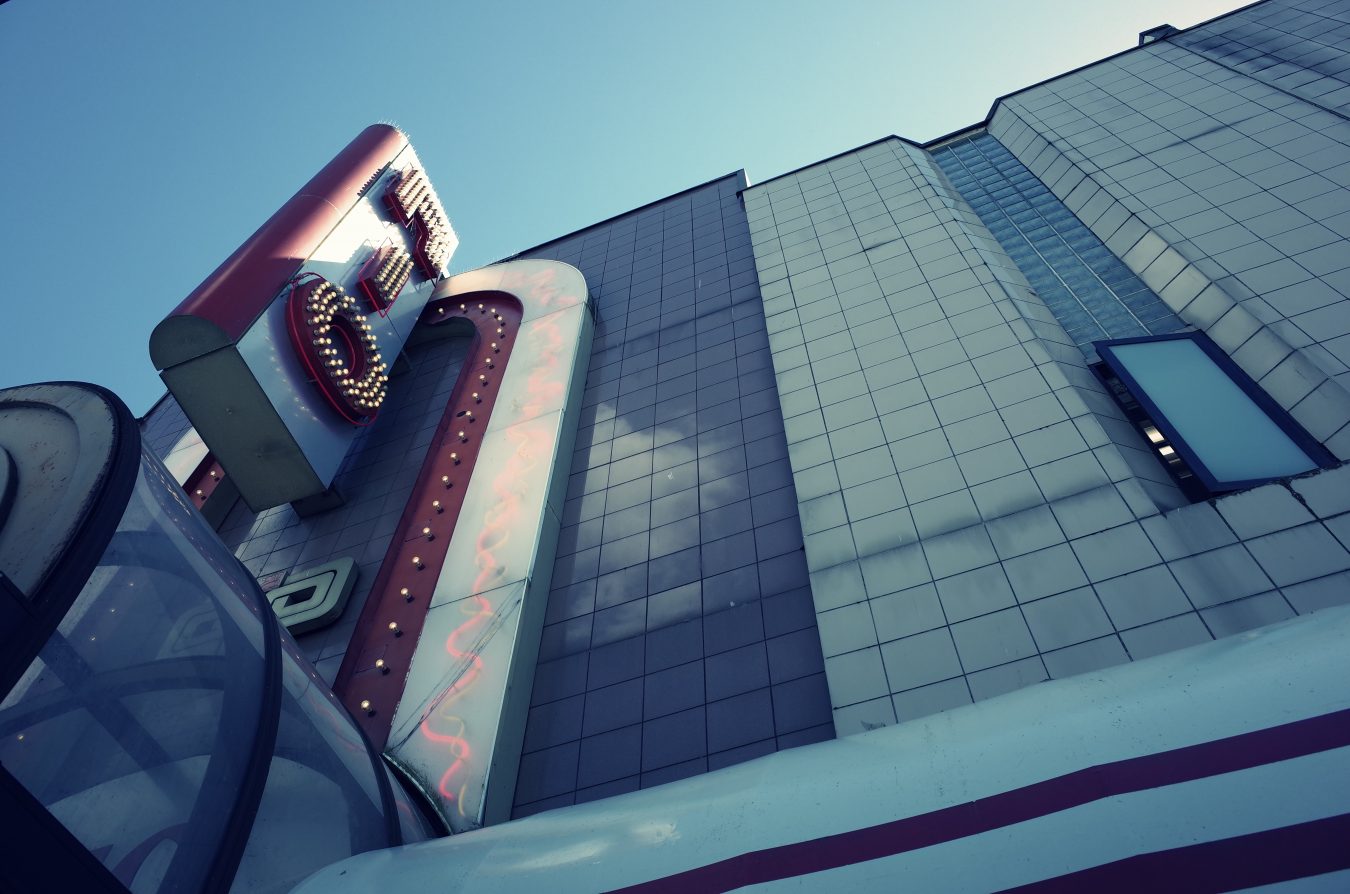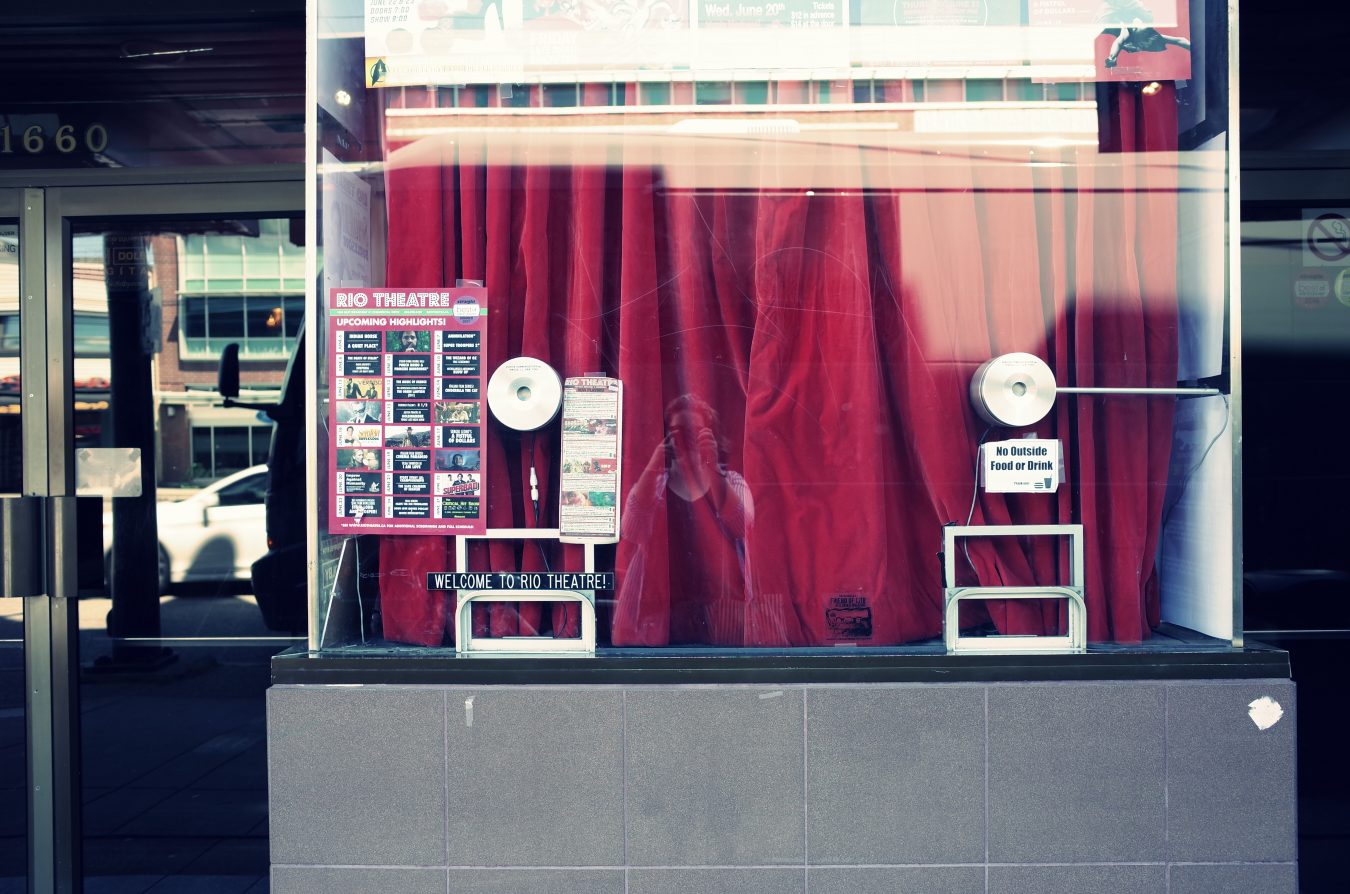On December 10, 1938, the principle shots for Gone with the Wind were filmed in Culver City, California. The movie would go on to become the first colour film to win an Oscar and would usher in the golden age of the silver screen. In a stroke of impeccable timing, 1938 was also the year the Rio Theatre opened on Broadway and Commercial in Vancouver.
The Rio was standing when Gone with the Wind premiered and has been standing for the 80 years since. When it was first built, it was similar to many film houses across the Lower Mainland. What makes it unique now is that it has survived as an independent, single-screen movie theatre (one of the few left in the city). It has lived several lives, beginning as one of a crowd and eventually transitioning into a bowling alley in the 1970s, an Asian-languages cinema in the ‘80s to ‘90s (renamed the Golden Princess), and finally to today’s iteration: a cozy legacy space that celebrates the best of local arts and cult classics.
Diversification has been the key to the Rio’s lasting success—as a movie theatre, it hosts a mix of independent, local, and international flicks; as a live performance venue, it is home to concerts, improv, poetry readings, comedy, burlesque, and variety shows. The 420 seats are fully accessible, there is a licensed bar serving beer and simple cocktails, and a concession stand includes comfort food like real buttered popcorn and grilled cheese sandwiches.
But getting to this place did not come without its share of disputes and challenges. When Corrine Lea first wanted to expand her business to include live performances along with the films, she ran into an unusual obstacle. She applied for a liquor license to increase sales, and after over a year of waiting, the license was granted, but with a surprise stipulation: the Rio was not allowed to operate as a licensed live theatre and an unlicensed movie theatre. In other words, she could have her liquor license, but she would have to stop showing films.
So Lea temporarily halted the movie schedule, and embarked on a battle that would culminate in the change of an antiquated law; her efforts allowed her to once again show films at the Rio (while remaining licensed), and also earned her the Queen Elizabeth II Diamond Jubilee Medal.
Things had been running smoothly ever since—at least, until 2017, when rezoning of the property allowed for condo development, and the Rio was suddenly on the market. A petition was circulated that received over 20,000 signatures of support to not let the Rio succumb to a glass condo fate. Even director and comedian Kevin Smith got in on the efforts to save the theatre.
In light of the community outpouring of support, the landlord agreed to sell the Rio building to Lea. She now has a limited amount of time to raise the funds, but so far, she has gathered over $500,000 in crowdfunding (she plans to garner one-third of the needed capital from patrons and two-thirds from investors). Michael Marcuzzi, a Vancouver resident who works in the film industry, jumped at the chance to donate. “The Rio is one of the only sources of alternative cinema in Vancouver,” he says. “It’s also a fantastic live venue, and without it there would be no alternative to contemporary blockbuster entertainment.”
The Rio is somehow both a regular occurrence and a special occasion. It is a singular space that is, quite simply, irreplaceable.
UPDATE, July 31, 2018: Thanks to a grant from the City of Vancouver, the Rio has been officially saved.
Read more from your Community.











